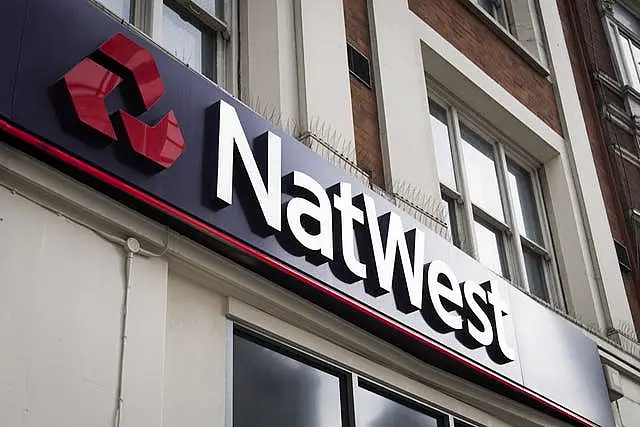NatWest Group’s decision to shut down Nigel Farage’s Coutts account showed “serious failings” in its treatment of the politician, an independent probe has found.
Law firm Travers Smith was appointed to conduct a review in the wake of the debanking saga, which culminated in the resignation of chief executive Dame Alison Rose.
The investigation found failures in how it treated confidential information and how it communicated with Mr Farage.
Dame Alison made an “honest mistake” in disclosing details of the former Ukip leader’s bank account to a BBC journalist, the report read.
“She honestly, but incorrectly, believed that the client had publicly confirmed that he was a customer of Coutts.”
But the decision to shut down Mr Farage’s bank account was lawful, and predominately commercial, it reported.
“Coutts considered its relationship with Mr Farage to be commercially unviable because it was significantly loss-making,” it said.
Mr Farage said earlier this year that Coutts had moved to shut down his account because his political beliefs did not align with the bank.

The political leader’s public statements on “issues such as the environment, race, gender and migration” served to be a reputational risk and were not considered to align with the group’s “purpose”, Travers Smith said.
But it concluded that Mr Farage’s accounts being unprofitable was the principle reason behind the closure, while his political and personal views were supporting factors.
NatWest’s chairman Sir Howard Davies said: “This report sets out a number of serious failings in the treatment of Mr Farage.
“Although Travers Smith confirm the lawful basis for the exit decision, the findings set out clear shortcomings in how it was reached as well as failures in how we communicated with him and in relation to client confidentiality.
“We apologise once again to Mr Farage for how he has been treated.
“His experience fell short of the standards that any customer should expect.”
The report is the first stage of the probe which was commissioned by the NatWest board in July.
The City regulator, the Financial Conduct Authority (FCA), said the report “has highlighted potential regulatory breaches and a number of areas for improvement”.
The FCA said it was looking further into how account closures and the handling of complaints might impact the wider fair treatment of customers.
Mr Farage criticised the review for having “whitewashed” the bank’s decision to close his accounts.
“Travers Smith has taken a very mealy-mouthed approach to this complex issue,” he said.
“The law firm argues that my political views ‘not aligning with those of the bank’ was not in itself a political decision. This is laughable.”

Earlier this week, the information watchdog ruled that Dame Alison infringed on Mr Farage’s data protection rights when she talked to a journalist about his relationship with Coutts.
The Information Commissioner’s Office (ICO) said the disclosure had been “unacceptable and should not happen again”, but that it does not plan on taking any further regulatory action over the matter.
The form chief executive resigned in July after admitting to a “serious error of judgment” in discussing Mr Farage’s Coutts account, but maintained that she did not share any personal financial information.
Dame Alison said the findings confirm “everything I told the board in July was correct”.
She said: “Both Travers Smith and the ICO have concluded that I inadvertently confirmed what had already been widely reported, that Mr Farage held an account at Coutts.
“The ICO also concluded the ‘impact around this specific disclosure was minimal’.
“Travers Smith is clear that ‘there was no leak of specific detailed financial information’.
“Travers Smith also confirmed I knew nothing about the comments made by Coutts staff about Mr Farage, which were deeply unpleasant and unfair.”
Mr Farage unearthed comments from internal messages between staff at the bank which suggested they had “driven him out of the country” over his account closure.
He said he obtained documents of the remarks through a subject access request to the bank for all the information it holds on him.







